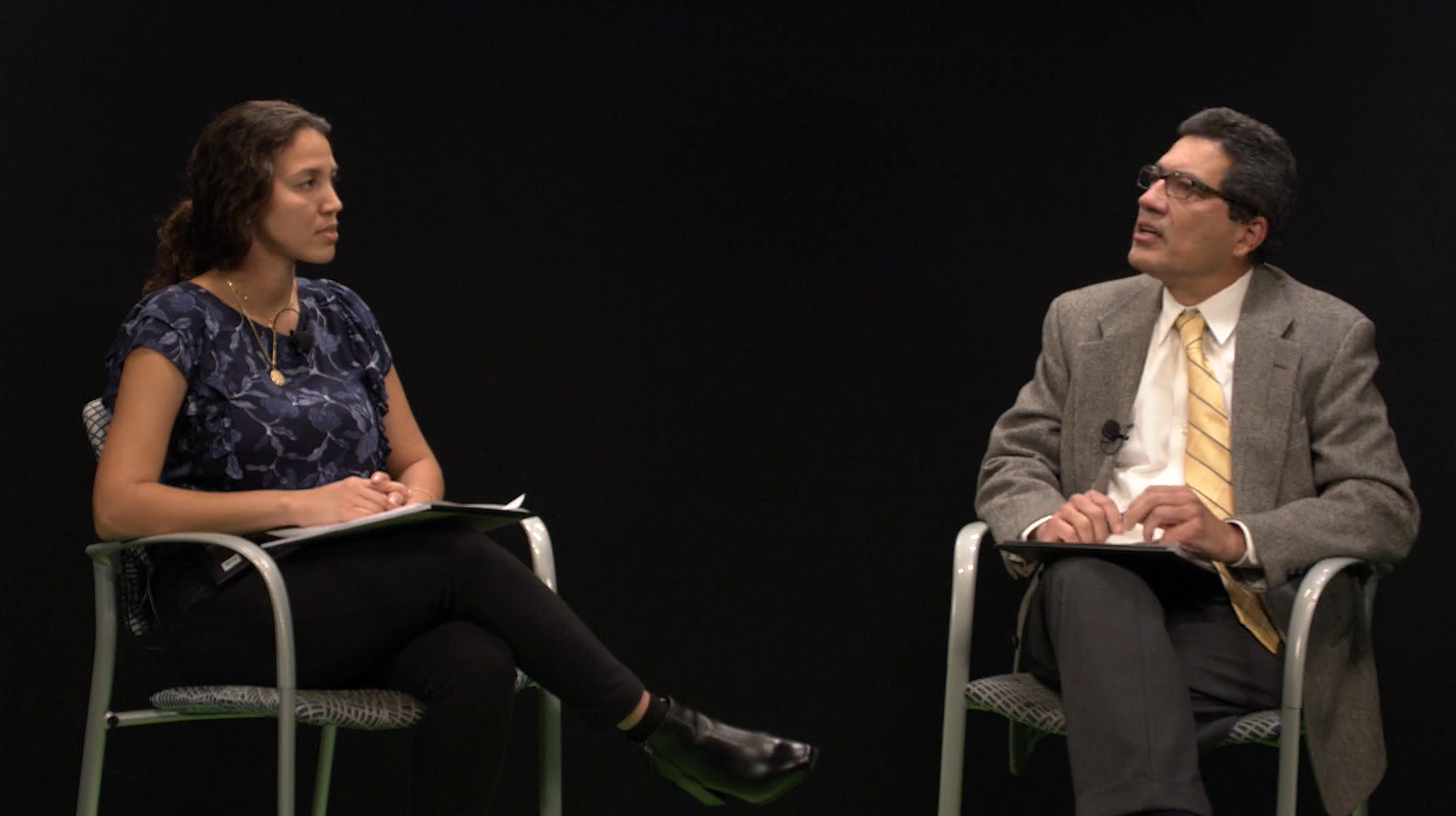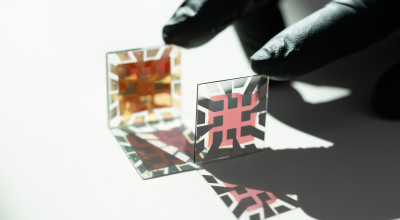
STEM@GTRI – the Georgia Tech Research Institute’s (GTRI) educational outreach program designed to inspire, engage, and impact educators and students in the STEM categories – recently teamed up with the Georgia Tech Library; GoSTEM, a Georgia Tech organization that provides Latino families with community service and online programming opportunities; and Georgia Tech's Office of Hispanic Initiatives to offer Spanish-language STEM outreach to students and families through community libraries.
In fall 2021, the team hosted three virtual sessions featuring GTRI researchers Samantha Lie-Tjauw, Margarita Gonzalez, and Alvaro Marenco. The researchers discussed their experiences as STEM professionals and the importance of exposing students to the basics of science, technology, engineering, and math (STEM) early on.
Marenco, a senior research engineer at GTRI, said he most enjoyed teaching parents about the importance of providing their children with a strong foundation in the subjects of math, computer science, and programming at an early age. As the father of two college-age daughters, Marenco added that he would like to explore future opportunities to guide parents through the college admissions process and help them ensure their children have successful careers.
"It is crucial that students receive a strong education in STEM in order to have a meaningful impact in the world," Marenco said. "The earlier they start, the better."
Marisa Cepeda moderated the sessions. Cepeda is a graduate research assistant in the Georgia Tech School of Chemistry and Biochemistry, and a representative of the Georgia Tech Latino Organization of GRAduate Studies (LOGRAS), a Latino graduate student organization on campus.

Cepeda said each interview inspired and reenergized her to continue pursuing her own goals in the STEM realm. Her favorite part of the series was the sense of community that the conversations created for Latinos in STEM.
"To me, there's no better opportunity than STEM outreach to inspire the next generation of Latino scientists and engineers," Cepeda said. "As an early career Latina scientist, it's always an honor and a pleasure to help share the stories of other Latinos making a real impact in our local communities and the world."
The events were pre-recorded and captioned in English to ensure the widest possible audience had access. Following the interviews, participating students and families could participate in a live Q&A session with the GTRI researchers in either Spanish or English, which had an interpreter present.
Extension activities are also provided in both languages to help students continue the STEM learning experience in the library or at home.
The series collaboration began in response to feedback from the community. After a Spanish-language Direct to Discovery virtual outreach session related to National Read Across America Day in March 2021, STEM@GTRI received multiple inquiries about future Spanish-language programming opportunities. Direct to Discovery is a free program for K-12 teachers in the state of Georgia. Lie-Tjauw heard about this feedback and connected it to similar discussions she heard from the Georgia Tech Library as part of her work on the library’s faculty advisory board.
From there, the collaboration grew. Catherine Manci, public programming coordinator from the Georgia Tech Library, and Tyler Kinner, a GTRI research scientist and STEM curriculum development lead for STEM@GTRI, worked together to craft the vision for the series. Seeking feedback and guidance on how to best serve Spanish-speaking audiences, the team grew to include Jorge Breton, director of the Office of Hispanic Initiatives, and Analía Rao, director of GoSTEM.
To learn more about STEM@GTRI, Direct to Discovery, and the Carreras de Tecnología series, please visit https://gtri.gatech.edu/stem.
Writers: Tyler Kinner and Anna Akins
Photos: Marisa Cepeda
GTRI Communications
Georgia Tech Research Institute
Atlanta, Georgia USA

The Georgia Tech Research Institute (GTRI) is the nonprofit, applied research division of the Georgia Institute of Technology (Georgia Tech). Founded in 1934 as the Engineering Experiment Station, GTRI has grown to more than 2,800 employees supporting eight laboratories in over 20 locations around the country and performing more than $700 million of problem-solving research annually for government and industry. GTRI's renowned researchers combine science, engineering, economics, policy, and technical expertise to solve complex problems for the U.S. federal government, state, and industry.
Learn more at www.gtri.gatech.edu and follow us on LinkedIn, Twitter, Facebook, and Instagram.



